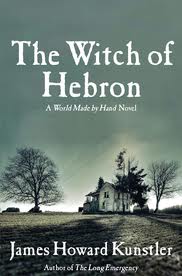James Howard Kunstler: World Made by Hand
February 9, 2011 by David
Filed under Fiction, WritersCast
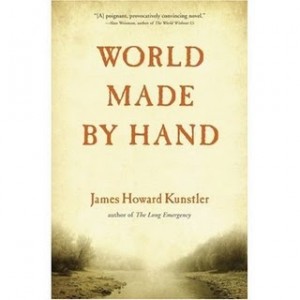 World Made by Hand – 978-0802144010 – paperback – Grove Press – $14.95 (e-book edition available)
World Made by Hand – 978-0802144010 – paperback – Grove Press – $14.95 (e-book edition available)
The Witch of Hebron: a World Made by Hand novel – 978-0802119612 – hardcover – Atlantic Monthly Press – $24.00 (e-book edition available)
This is an unusual podcast for me as it covers two books, World Made by Hand and the next in what looks to be at least a trilogy for author Kunstler, The Witch of Hebron. I had heard of, but never read any of Jim Kunstler’s books before these two, which I read much the way I read science fiction and fantasy novels when I was young, voraciously, entering and imaginatively inhabiting the world the author has created, joyfully, and always wanting more.
These two books are set in a fictional town in a real region of upstate New York, near the Hudson River, several hours north of Albany, in a period that Kunstler has dubbed The Long Emergency. That is the title of his most recent and best-selling work of nonfiction, a book I subsequently read and now believe is one of the most important books of our time.
In The Long Emergency, Kunstler describes why our current civilization is inevitably going to collapse. This is by no means a joyful prediction, but as his novels illustrate, the world ahead as we might imagine it, is not completely grim or devoid of joy and earthly human pleasure either. It is a post-fossil fuel world, and therefore much, much larger – humans do not travel thousands of miles in a day any longer. Governments have, for the most part, collapsed along with the great powerful corporations that have come to dominate our landscape. There is effectively no interstate commerce. Agriculture based on human and animal power is the dominant feature of daily life for most people.
There is a rise in human suffering, but a massive decline in human population, and during the period in which these novels are set, relatively soon after the collapse of modern civilization, there is a great deal of rediscovery of the tools and methods on which human life was built over the many centuries preceding the 21st. There are still many who remember how things were, and their beings are marked by what they knew, and lost, and now, as they are relearning how to live, by rediscovery of a different set of values. The younger generations know nothing directly of the world we now take for granted. Their lives have always been slower than ours, more physically challenging, and much more about adaptation to one’s direct physical environment. In addition to the daily necessities, it is personal relationships, family, community and local culture that this world revolves around. It is a world made by hand, and sometimes much rougher and more painful for being so, but there is a palpable sense of redemption and concern for what is good and right that underlies the world that Kunstler has imagined, that gives meaning to the struggles his characters must face throughout these two books.
Kunstler is a terrific writer and storyteller. These are fully imagined characters living in a plausible future. I can’t wait to read the next book in the series, and since it won’t be published for some time, I have been reading Kunstler’s older novels (most of which are sadly, out of print). When we talked, I had not read The Long Emergency, so our conversation is focused solely on the two novels which followed it. I’d recommend to anyone who has not read these books to start with the fiction as I did, and then go back to the nonfiction. It’s important for us to have an understanding of where we are headed, and I think it helps us to face the difficulties ahead if we can imagine ourselves into a better place, just as Jim Kunstler has done with A World Made by Hand and The Witch of Hebron.
Do visit Jim’s website, which continuously presents valuable information about where we are and what we can do about it. Make sure you take a side trip to the mini-site for these novels, which is a beautifully put together experience in and of itself. A great author biography here. We had a fantastic wide-ranging conversation about the novels, the world they are set in, and how these characters and their stories illustrate the future Kunstler has so beautifully imagined and portrayed.
Podcast: Play in new window | Download
Read All Day
 Nina Sankovitch has been an inspiration for me. From October 2008 to October 2009 she read a book a day and wrote about it (intelligently and cogently) at her website ReadAllDay. Here’s what she says about why she did it: “I began my year in an effort to come to terms with the tragic death of my oldest sister, Anne-Marie, and to find purpose and meaning in my life. I called my year of reading The 365 Project.”
Nina Sankovitch has been an inspiration for me. From October 2008 to October 2009 she read a book a day and wrote about it (intelligently and cogently) at her website ReadAllDay. Here’s what she says about why she did it: “I began my year in an effort to come to terms with the tragic death of my oldest sister, Anne-Marie, and to find purpose and meaning in my life. I called my year of reading The 365 Project.”
I’ve sent her some books to read and she has given me lots of suggestions for books I have read, and in some cases then interviewed authors for Writerscast. We’ve liked some of the same books, but judging from her site, she and I have very different reading interests. Knowing that has helped me choose some new directions, which I think is a great way to keep from falling into a reading rut.
Meanwhile, Nina’s year of reading adventure was discovered and written about by the New York Times and a number of other media outlets, and she even got a book deal. Her book is called Tolstoy and the Magic Chair: My year of magical reading will be published in June by Harper. I certainly plan to read it and interview her about it too. I’m jealous and dumbstruck with admiration for what she has done.
Anyway, the reason I am writing about Nina is because she has launched a redesigned website that I think is worth a visit. She is continuing to read and write reviews about books of all sizes and shapes – not every day of course, but more books than most people can read and write about intelligently. Here’s how she does it:
HOW TO READ All DAY
Always have a book with you.
Read while waiting.
Read while eating.
Read while exercising.
Read before bed.
Read before getting out of bed.
Read instead of updating FB.
Read instead of watching TV.
Read instead of vacuuming.
Read while vacuuming.
Read with a book group.
Read with your kid.
Read with your cat.
Read to your dog.
Read on a schedule.
Always have a book with you.
Thank you Nina!
Publishing Talks: David Wilk interviews Rick Richter
February 2, 2011 by David
Filed under Ebooks and Digital Publishing, PublishingTalks, The Future
 In this series of interviews, called Publishing Talks, I have been talking to book industry professionals and other smart people about the future of publishing, books, and culture. This is a period of disruption and change for all media businesses. We must wonder now, how will publishing evolve as our culture is affected by technology, climate change, population density, and the ebb and flow of civilization and economics?
In this series of interviews, called Publishing Talks, I have been talking to book industry professionals and other smart people about the future of publishing, books, and culture. This is a period of disruption and change for all media businesses. We must wonder now, how will publishing evolve as our culture is affected by technology, climate change, population density, and the ebb and flow of civilization and economics?
I believe these Publishing Talks conversations can help us understand the outlines of what is happening in the publishing industry, and how we might ourselves interact with and influence the future of publishing as it unfolds.
These interviews give people in and around the book business a chance to talk openly about ideas and concerns that are often only talked about “around the water cooler,” at industry conventions and events, and in emails between friends and they give people inside and outside the book industry a chance to hear first hand some of the most interesting and challenging thoughts, ideas and concepts being discussed by people in the book business.
I’ve known Rick Richter for a number of years. He is smart, energetic and incredibly creative. I am told he plays a mean guitar too. He’s unusual in publishing for having been a leader in both sales and editorial, and for being at heart, an innovator and entrepreneur. I have talked to him a number of times over the past couple of years about his thinking and ideas, and have been interested in his new venture, Ruckus Media since it was still a brainstorm generated idea. Unlike many brainstormed ideas, this one has become real, and very quickly too.
Ruckus represents at least one budding trend in publishing for kids – which is to be born digital and to stay that way. Print, ink and paper will be someone else’s job. At a recent Digital Book World presentation, Rick’s signature statement about his new work was this: “books you can play with and games you can read.”
Rick is currently President, CEO, and Chair, Ruckus Media Group. Previous to founding Ruckus, he was President and Publisher of the Simon & Schuster Children’s Division (1996 – 2008). In 1990, Rick co-founded Candlewick Press, the prestigious children’s publisher based in Boston.
“The goal of Ruckus is to combine the most creative minds in children’s media with tremendously exciting new mobile devices. We’ll be satisfied when a mom or dad can hand their phone or tablet to their child without one ounce of guilt, knowing that the experience the child is about to have will entertain them, challenge them, perhaps make them giggle, and be utterly satisfying.” Beginning in May, Rick will be an adjunct professor at the NYU Master of Science Program in Publishing.
Rick and I had a great talk, not just about what he is doing at Ruckus to make change and create a new way of publishing for kids, but also about the future of digital publishing and much more. Ruckus, along with a number of other new digital publishers are in the process of establishing new ways for children to experience books and reading in some very exciting ways. And it looks like they are having alot of fun doing it.
Podcast: Play in new window | Download
Mickey Leigh: I Slept with Joey Ramone
January 28, 2011 by David
Filed under Non-Fiction, WritersCast
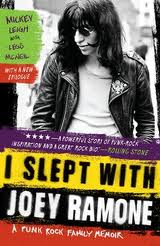 978-1439159750 – paperback – Simon & Schuster – $15.99 (ebook versions available $12.99)
978-1439159750 – paperback – Simon & Schuster – $15.99 (ebook versions available $12.99)
Mickey Leigh grew up in Queens in the 1950s and 1960s as Mitchel Hyman. His brother was Jeffrey Hyman, more famously known as Joey Ramone, lead singer of the great American punk rock band, The Ramones. I Slept with Joey Ramone (subtitle: a punk rock family memoir) tells their story from the beginning to the end of Joey’s relatively short life and just a bit farther into the almost present day. Mickey had some writing help from rock journalist Legs McNeil, and throughout the book, the story is told compellingly in Mickey’s voice and from his perspective.
We start in Queens where the boys grow up somewhat rockily. Their family situation was never easy, and Mitchel and Jeff were bullied misfits. Joey had both physical and psychological issues that manifested early in his life. Music became their savior very early, but at the beginning it was Mitchel (Mickey) who was the musician, and it took some time before the very complicated Jeff got together with the band that became the Ramones and found not only his voice, but his new identity.
The Ramones story as told by Mickey Leigh, is pretty incredible, even for fans who know something about the band and were there during the glory days. The relationships between the various band members were legendarily terrible. How this band stayed together and made such incredible music is still a mystery. Mickey was there at the beginning; John Cummings, aka Johnny Ramone, was initially his best friend. Mickey ended up being the band’s first roadie, while Joey, the quintessential misfit outsider, became the front man singer of what eventually became one of the greatest rock bands of all time. Later Mickey had his own career with a number of bands, as well as being a songwriter too.
The many stories and incidents recounted in this book are never boring, even when the sometime strange and complicated elements of Joey Ramone’s personality begin to repeat themselves over years. There is a tremendous amount of love here, and some not so nice things as well. Mickey’s own story is complicated and he has alot to say about alot of the people he worked with, for and sometimes against throughout the years. Nothing here is ever boring. It’s sometimes sad and frustrating to know how things were for Joey Ramone and his family, friends and associates, as it was often difficult, confusing and painful for all of them. Even years later, when they were inducted into the Rock and Roll Hall of Fame, the Ramones created an emotionally complicated scene.
Ultimately, Mickey (and doubtless Legs too) has captured beautifully a unique and special part of modern musical history, that is also the story of redemption, which is after all, the real story of rock and roll. And at the end Joey and Mickey always did make up. As Mickey tells it, the last time really counted the most. “He pulled me down to him, and he just didn’t let go. I can still feel that hug.” This is a book well worth reading for anyone interested in New York punk rock. I had a great time talking to him about the book and his experiences in rock and roll.
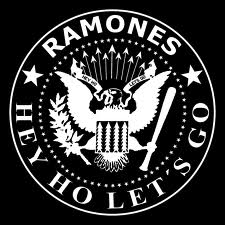
Podcast: Play in new window | Download
Yet another blog?
 Well not really. I’ve been posting author and book industry interviews at Writerscast now for just about two years, and while I like to feel that the work speaks for itself, I’ve often felt the need to share information and news with my (growing) audience. Aside from Twitter, which is lovely but oh-so-brief, there really has been no way for me to talk about matters related to the site and its content here.
Well not really. I’ve been posting author and book industry interviews at Writerscast now for just about two years, and while I like to feel that the work speaks for itself, I’ve often felt the need to share information and news with my (growing) audience. Aside from Twitter, which is lovely but oh-so-brief, there really has been no way for me to talk about matters related to the site and its content here.
By introducing this little section of Writerscast dubbed “Pipeline,” I can let you know when I come across interesting publishing related news, talk about books that may not be among those whose authors I interview, or just tell you when I am going on vacation and won’t be posting new interviews for a few days. I’ll spare you any thought pieces or pontifications about publishing here (saving that for www.booktrix.com.)
In Pipeline I can also tell you about some of the upcoming posts on Writerscast, or other sites I have discovered I think you should know about, information I hope will be helpful to everyone who visits this site.
For example, my next author interview is with Mickey Leigh about his memoir, I Slept with Joey Ramone. My next Publishing Talks interview is with the always interesting Rick Richter, who has founded a new digital publishing company called Ruckus Media. I think you will enjoy both of these talks.
Please feel free to email me, David Wilk, at david@booktrix.com. Your suggestions, comments, complaints, etc. are always welcome. Praise too, if you hear something you really like at Writerscast. I’m always looking for interesting people to interview, so let me know who is out there I should be talking to and how to reach them.
And for those of you, like me, buried in snow, just remember that spring is less than 60 days away!
Douglas Rushkoff: Program or be Programmed
January 11, 2011 by David
Filed under Non-Fiction, WritersCast
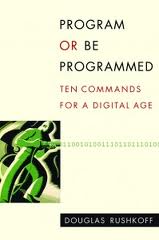 978-1935928157 – Paperback – OR Books – $16.00 (ebook edition $10.00)
978-1935928157 – Paperback – OR Books – $16.00 (ebook edition $10.00)
with terrific original illustrations by Leland Purvis.
I think this book, Program or be Programmed: Ten Commands for a Digital Age by digital critic and thinker Douglas Rushkoff, should be required reading for anyone interested in modern culture, politics or economics. It’s a short book, densely argued, that requires careful reading and attention to its ideas. Which probably makes it daunting to many in this era of fragmented ideas and short subjects. But it’s divided into ten clear sections (note “commands” as in programming inputs, rather than “commandments” as in biblical instructions) and is well worth the effort a reader must put into reading it.
I spent more time with this short book than with many much longer books I have read recently. And I am very happy I did. As Howard Rheingold says “Thinking twice about our use of digital media, what our practices are doing to us, and what we are doing to each other, is one of the most important priorities people have today.” It’s impossible not to agree. And Rushkoff understands the complexity of behavior and thinking that the always-on, always-connected internet has brought to modern culture.
It’s not about whether the internet is good or bad, or whether online culture somehow supplants a more preferable offline one. As the publisher says about this book, “the real question is, do we direct technology, or do we let ourselves be directed by it and those who have mastered it? “Choose the former,” writes Rushkoff, “and you gain access to the control panel of civilization. Choose the latter, and it could be the last real choice you get to make.”
Having the opportunity to talk about these ideas with Rushkoff was tremendously exciting and invigorating. He’s a really smart guy whose clarity of thought I admire alot. I’ve spent alot of time participating in, reading about and analyzing new media and modern culture myself, and I know I have learned alot from Douglas Rushkoff’s books and ideas. I think Program or be Programmed is one of the most important books I have read in a long time.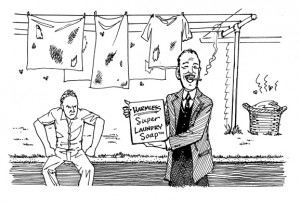
Podcast: Play in new window | Download
Claudia Dreifus: Higher Education?
January 3, 2011 by David
Filed under Non-Fiction, WritersCast
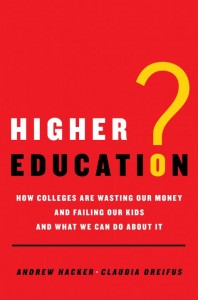 978-0805087345 – Times Books/Holt – Hardcover – $26.00 (ebook edition available at $12.99)
978-0805087345 – Times Books/Holt – Hardcover – $26.00 (ebook edition available at $12.99)
I well remember reading the work of sociologist Andrew Hacker many years ago (and was particularly impressed by his now out of print The End of the American Era). When I learned that he and New York Times writer Claudia Dreifus had collaborated on a new book about the modern college and university system, I knew I would want to read it. The complete title and subtitle of the book is important as it tells what the book is about pretty clearly: Higher Education?: How Colleges Are Wasting Our Money and Failing Our Kids—and What We Can Do About It. While this book takes a far different approach than Anya Kamenetz’s DIY U, the two books really should be read together by anyone interested in the future of higher education. (My interview with Anya can be found here in the Writerscast archives.)
Here is how Hacker and Dreifus describe this book on their excellent and highly recommended website:
“Higher Education? asks what students and families receive for the approximately quarter of a million dollars four years at a top-tier American university cost. With many prestigious universities hinting of continued tuition hikes, with the rate of student debt increasing to crisis levels, we ask, “How did a college degree become the second most expensive purchase families will make in their lifetimes?”
Plus: “Are young people getting good value for their enormous investments?”
We hope that our book can trigger a national discussion. With a system this large and complex, we certainly don’t have all the answers. But we hope to toss a few pertinent—and impertinent–questions into the public square.”
I think their questions, their many criticisms, and their suggestions for positive change mostly ring true. As almost everyone knows, the cost of a four year college education has become astonishingly expensive, and there seems to be no way to slow down the out-of-control machine. Hacker and Dreifus question some basic assumptions that so many parents, high school educators and kids themselves take for granted – that the more prestigious schools are “worth” their costs, that the expense of a four year college education is justified by the later benefits of coveted high income employment, etc. But they also ask, what should a college education be for, and how do colleges measure up to what we expect from them.
If going to college is only about students later getting the best jobs, are colleges providing education or some sort of high end vocational system? What is the justification for college sports? Do highly paid tenured professors really contribute to the education of students in ways commesurate with their salaries, and how do we justify all the many layers of bureaucracy in colleges and universities throughout America that do not provide significant educational value to the students who bear the majority of the costs they incur? And what about the low-paid, overworked adjunct professors who bear the brunt of the teaching burden in so many institutions of higher learning?
One could expect quite a bit of controversy about this book and certainly quite a bit of resentment by many of the established academic interests they attack. Interestingly, Vartan Gregorian, the former president of Brown University and current president of the Carnegie Corporation of New York loves the book: “With facts, figures and probing analysis, authors Andrew Hacker and Claudia Dreifus clearly lay out why so many colleges and universities are helping to support a de facto American class system while failing their primary mission of preparing not only skilled labor but also producing educated, knowledgeable citizens who can play a role advancing our national life and strengthening our democracy.”
Reading this powerfully argued book can make one almost uncomfortable, as they question so many of the benefits of higher education we tend to take for granted. But in the end, it is difficult not to agree that there is much that needs to change in the way our colleges and universities function in society. The future of American higher education looks grim if we do not address these issues in the very immediate future.
I had originally hoped to interview both the authors together, but while that was not possible, my discussion with Claudia Dreifus was both lively and interesting. Since Claudia’s background is in interviewing, she handles being the interviewee with aplomb and grace. I’d recommend listening to this interview and then reading the book as soon as possible. You will want to learn more, I think then, about how you can work toward making actual change in the American educational system. Visiting the Hacker/Dreifus website might be a good start but I do think it will require organized, meaningful action especially by parents and their children as they are the ones most able to cause change to occur. Is there anyone who can lead such a movement? Or will the current system simply continue on its present arc until the cost of education is so high that consumers finally just say “no more?”
Podcast: Play in new window | Download
Publishing Talks: David Wilk interviews Allee Willis
December 28, 2010 by David
Filed under PublishingTalks, Technology, The Future
 In this series of interviews, called Publishing Talks, I have been talking to book industry professionals and other smart people about the future of publishing, books, and culture. This is a period of disruption and change for all media businesses. We must wonder now, how will publishing evolve as our culture is affected by technology, climate change, population density, and the ebb and flow of civilization and economics?
In this series of interviews, called Publishing Talks, I have been talking to book industry professionals and other smart people about the future of publishing, books, and culture. This is a period of disruption and change for all media businesses. We must wonder now, how will publishing evolve as our culture is affected by technology, climate change, population density, and the ebb and flow of civilization and economics?
I hope these Publishing Talks conversations will help us understand the outlines of what is happening, and how we might ourselves interact with and influence the future of publishing as it unfolds.
These interviews give people in and around the book business a chance to talk openly about ideas and concerns that are often only talked about “around the water cooler,” at industry conventions and events, and in emails between friends and they give people inside and outside the book industry a chance to hear first hand some of the most interesting and challenging thoughts, ideas and concepts being discussed by people in the book business.
Allee Willis is one of my all-time favorite people. She is best known as a spectacular and hugely successful songwriter; her songs for Earth, Wind and Fire and the Pointer Sisters were giant hits, she wrote the theme song for “Friends,” the music for the Oprah Winfrey produced Broadway musical production of “The Color Purple, collaborated with the web sensation Pomplamoose (Jungle Music), and as of the date of this posting, her song “I’m Here” was sung by Jennifer Hudson for Oprah Winfrey’s Kennedy Center Honor Award. But all of this musical success notwithstanding, as she herself says, Allee is “a one-woman creative think-tank. A multi-disciplinary artist and visionary thinker whose range of imagination and productivity knows no bounds, her success exuberantly defies categorization-‘unique’ pales as a descriptor.” You have to visit her website to begin to get an idea of what a creative powerhouse she is. Her Allee Willis Museum of Kitsch is not to be missed. She’s constantly creating, integrating music, art, video, multi-media technology and lifestyle via a series of work which she co-composes, sings, plays, produces, draws, animates, directs, designs web worlds for and stars in. The first release, “Allee Willis Presents Bubbles & Cheesecake “It’s A Woman Thang”-part of a 6-song collaboration with singer-songwriter Holly Palmer (aka Cheesecake) was selected as Official Honoree in the 2008 Webby Awards, and won three 2008 W3 Awards. Her second video, “Allee Willis Presents Bubbles & Cheesecake “Editing Is Cool” was also ‘featured’ on YouTube. At one point, Willis’ 2009 video “Hey Jerrie,” co-starring 91-year-old female drummer on an oxygen tank Jerrie Thill, was the 12th most popular video in the world on YouTube.
I wanted to talk to Allee mainly because she has been working with the internet in her work almost since the ‘web went public – as she points out, the ‘web itself is her medium. She is the ultimate social being, her work itself is social art, her medium is her life. Anyone working in an artistic discipline today can learn from what she knows and how she conducts herself as an artist. I loved talking to Allee about her work and what she knows – which is a tremendous amount. And now I am addicted to her website too. Writers and publishers, please pay attention to what she has to say: art is social! books are bait!
Podcast: Play in new window | Download
Jaimy Gordon: Lord of Misrule
December 18, 2010 by David
Filed under Fiction, WritersCast
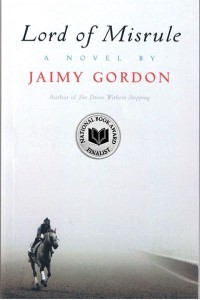 978-0-929701-83-7 – Hardcover – McPherson & Company – $25.00
978-0-929701-83-7 – Hardcover – McPherson & Company – $25.00
I can’t say enough good things about Jaimy Gordon’s writing, up to and including Lord of Misrule, this year’s winner of the National Book Award. Although she has been writing for the past 40 years, producing five wonderful, interesting novels and a number of smaller works during that time, for the most part Jaimy’s audience has been small. Perhaps this is fitting for someone whose work does not easily fit the standard categories of commercial fiction, as the structure of the publishing and bookselling machinery has not provided much room for many writers and books outside the mainstream for quite some time.
That said, Jaimy Gordon is simply a terrific writer and Lord of Misrule may well be her best book yet. It’s set in a mythical down-and-out racetrack Indian Mound Downs, downriver from Wheeling, West Virginia. There are five main characters, all from disparate and desultory backgrounds, but all connected by their wishes, dreams and aspirations, which drive them and the novel forward. And the book is constructed of four sections, each named for a particular horse in a particular race. The story unfolds almost magically, and it’s one of those books that is literally impossible to put down. I was hooked early on and loved the ride the author took me on, peopled by wonderful down and out Runyonesque characters who speak amazing dialogue in the voices of Appalachian region horse people, and of course beautiful horses throughout.
Here’s a brief excerpt from the book that gets across a bit of the style of the book (and you can download a PDF excerpt of the novel at the publisher website here):
“They were all looking for a van like a Chinese jewel box, like no horse van that had ever been seen on a backside, something red and black and glossy, with gold letters, LORD OF MISRULE, arched across each side. All the same when a plain truck with Nebraska plates rolled in . . . they knew who it was. They were watching, though the van was unmarked and dirty white, one of those big box trailers with rusty quilting like an old mattress pad you’ve given to the dog. The van bounced and groaned on its springs along the backside fence, headed for the stallman’s office. Red dust boiled around it. They blinked as it dragged two wheels through the puddle that never dried, the puddle that had no bottom. . . . They peered through the vents when the van went by and saw the horse’s head, calm, black and poisonous of mien as a slag pile in a coal yard . . .
The van stopped, woof, down comes the ramp and a kid, unhealthy-looking like all racetrack kids, worm white, skull bones poking out of his skinny head, stood at the top of the ramp with a small black horse that couldn’t even stand right: Lord of Misrule . . . rocked on the flat floor of the van like a table with one short leg. And those legs – they were so swelled out from long-ago bowed tendons on both sides that they were one straight line from knee to ankle, drainpipes without contour. ”
I’ve been reading (and admiring) Jaimy’s work for a long time, since her first published work Shamp of the City-Solo was thrust into my hands by her publisher Bruce McPherson probably in 1975. It’s a thrill to see her work recognized more widely and gratifying to know that this excellent writer will now always have a much larger audience for her writing. She and this new book are getting great coverage in all sorts of media. Here’s an excellent profile of Jaimy by Chip McGrath in the New York Times: Writer Races to Victory From Way Off the Pace. There have been many others, many of which have focused more on the storyline of “obscure writer finds sudden fame” than on her book and writing career.
I wanted to spend a good amount of time talking in detail with Jaimy specifically about this book, Lord of Misrule, along with something of the story of how this book came to be published (it’s a good story, reflecting much about the nature of independent publishing and serious fiction – discussed in more detail in my companion interview with publisher Bruce McPherson).
Jaimy Gordon is a terrific writer who has a lot of important things to say, and I’m very pleased to have had this opportunity to talk to her about her work.
Podcast: Play in new window | Download
Publishing Talks: David Wilk Interviews Bruce McPherson
December 17, 2010 by David
Filed under Publishing History, PublishingTalks, The Future
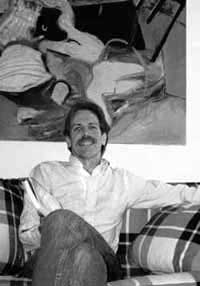 In this series of interviews, called Publishing Talks, I have been talking to book industry professionals and other smart people about the future of publishing, books, and culture. This is a period of disruption and change for all media businesses. We must wonder now, how will publishing evolve as our culture is affected by technology, climate change, population density, and the ebb and flow of civilization and economics?
In this series of interviews, called Publishing Talks, I have been talking to book industry professionals and other smart people about the future of publishing, books, and culture. This is a period of disruption and change for all media businesses. We must wonder now, how will publishing evolve as our culture is affected by technology, climate change, population density, and the ebb and flow of civilization and economics?
I hope these Publishing Talks conversations will help us understand the outlines of what is happening, and how we might ourselves interact with and influence the future of publishing as it unfolds.
These interviews give people in and around the book business a chance to talk openly about ideas and concerns that are often only talked about “around the water cooler,” at industry conventions and events, and in emails between friends and they give people inside and outside the book industry a chance to hear first hand some of the most interesting and challenging thoughts, ideas and concepts being discussed by people in the book business.
I have had some really interesting conversations with people in the publishing industry this year. The present is a time of great upheaval and change for many in publishing. Recently, I had the pleasure of speaking with Andrew Steves of Canada’s relatively tiny Gaspereau Press, just before their book, The Sentimentalists won that country major book award, the Scotiabank Giller Prize. Soon after, I was able to talk to Bruce McPherson of McPherson & Co., about his many years of publishing and the great news that his recently published Lord of Misrule by old friend Jaimy Gordon had won the National Book Award (quite a surprise for all!). It’s unusual enough for a major national book award to recognize the work of independently published books, but to have two almost simultaneously in both the US and Canada must mean something about these times. In other words, I don’t think these are outlier events.
As it happens, I’ve known Bruce and Jaimy for about as long as I have known anyone, going back to when Bruce began publishing as Treacle Press right after graduating Brown in the early 1970’s. The first book he published was Jaimy’s superb and inventive novel, Shamp of the City-Solo. I read that book because Bruce told me I must, and loved its wildly inventive story and Jaimy’s brilliant writing. I’ve been a fan and reader of hers ever since. Bruce has published a wide range of interesting books in film, art and fiction. He’s developed a clear vision of who, what and how he will operate as a publisher, and has managed to invent a working business model that in many ways reflects his own independent thinking and unwillingness to compromise art for common business demands.
In many ways, the recognition of Jaimy Gordon as a great writer is a recognition of Bruce McPherson as a great publisher, and a validation of a somewhat old fashioned notion of commitment and loyalty to art, talent and human beings. Writers as living, breathing, suffering artists whose publishers support them, prod them to do their best work, and love them unabashedly and without compromise. That may sound sentimental in these harsh times, but it’s a sentiment I am willing to cherish and celebrate. I admire Bruce and the body of work he has produced in more than 35 years of struggle.
Neither Bruce nor McPherson & Co. promote anything other than the books and authors themselves, i.e., it’s not about the publisher, it’s about the books. I very much enjoyed the opportunity, therefore, to shine a bit of light on Bruce and his work, and hopefully to illuminate something of what his publishing has meant and means for our culture. And of course the experience of winning the NBA is present throughout. I hope listeners will enjoy this podcast in tandem with my current interview with Jaimy Gordon as well.
Podcast: Play in new window | Download


